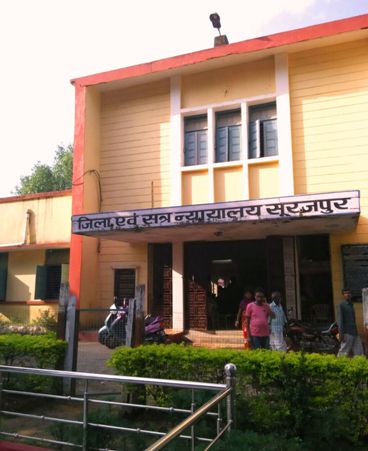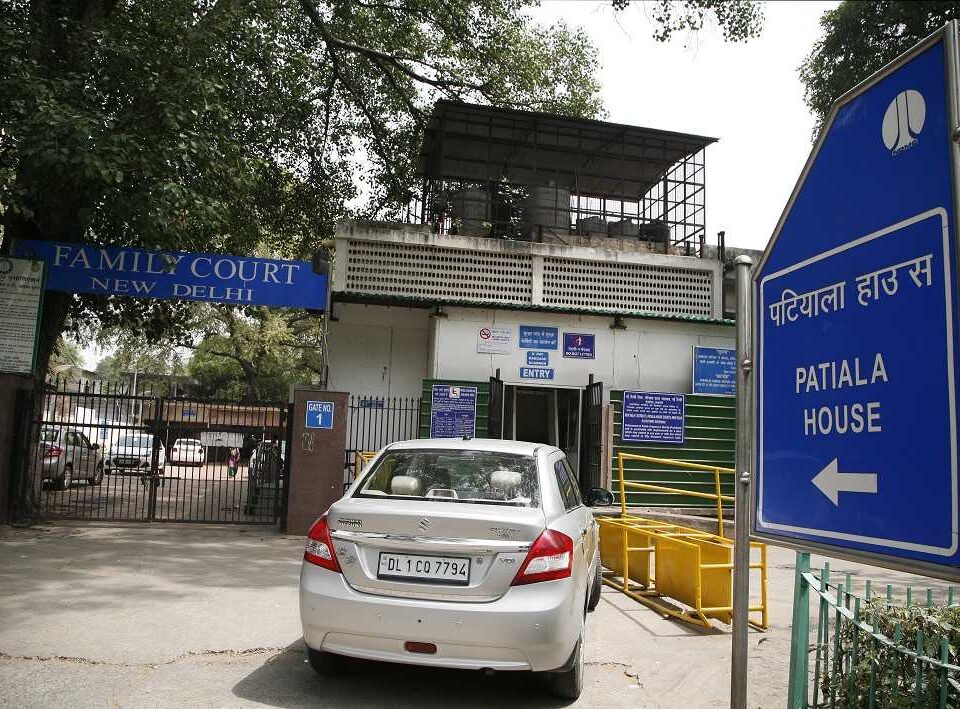NRI Divorce Cases – Comprehensive Legal Solutions for Overseas Marital Disputes
Divorce cases involving Non-Resident Indians (NRIs) come with a unique set of legal challenges due to the complexities of cross-border jurisdiction, conflicting international laws, and the intricacies of varied legal systems. When one or both spouses reside abroad, the legal landscape becomes more complicated, often requiring specialized legal expertise to ensure that rights are protected and legal procedures are correctly followed. Our experienced divorce lawyers at Top Divorce Lawyer specialize in handling NRI divorce cases with precision, providing reliable and effective legal assistance tailored to the specific needs of NRI clients. Whether you are residing abroad or your spouse is an NRI, we provide comprehensive legal support to address all aspects of NRI divorce cases. From jurisdictional disputes and recognition of foreign divorce decrees to child custody matters involving international relocation, our team is well-versed in managing complex divorce cases involving overseas spouses. We understand the critical importance of ensuring that summons are properly served when one party is located outside India, and we take the necessary steps to facilitate smooth legal communication across borders. Additionally, property division in NRI divorce cases can be especially challenging when assets are located both in India and abroad. Our legal experts assist in identifying and securing rightful claims to assets, ensuring equitable distribution of property and financial assets regardless of location. Furthermore, matters of alimony and maintenance often require specific attention to foreign income and assets, making it essential to have a legal team with in-depth knowledge of both domestic and international divorce laws. At Top Divorce Lawyer, we are committed to delivering efficient and effective legal solutions for NRI divorce cases. Our team leverages extensive legal expertise, international collaborations, and a client-centric approach to resolve NRI divorce disputes swiftly and successfully. Contact us today to discuss your NRI divorce case and get expert legal assistance tailored to your unique circumstances.

Why Choose TopDivorceLawyer
- Experienced Lawyers: Skilled in handling mutual divorce cases with expertise under the Hindu Marriage Act.
- Quick and Efficient Process: We ensure a hassle-free, fast divorce process to save your time and energy.
- Confidentiality Assured: Your privacy is our priority; all your personal and legal details remain secure with us.
- Affordable and Transparent Fees: Clear, affordable pricing with no hidden costs—quality legal services within your budget.
- Personalized Legal Solutions: Tailored advice and solutions suited to your specific needs for a smooth divorce experience.
- End-to-End Assistance: From petition filing to final decree, we assist you through every step with care.
Key Legal Issues in NRI Divorce Cases
NRI divorce cases often present a host of complex legal challenges that can significantly complicate the resolution process. One of the primary issues in such cases is the question of jurisdiction — determining which country’s legal system has the authority to adjudicate the divorce. Jurisdictional disputes can arise when one spouse resides in India while the other is living abroad, leading to conflicts over which court has the power to hear the case. Understanding the principles of private international law becomes crucial, as conflicting laws may come into play, making it essential to choose the appropriate legal forum carefully. Another critical legal issue in NRI divorce cases involves the recognition and enforcement of foreign divorce decrees in India. Not all divorce decrees obtained abroad are automatically recognized by Indian courts. According to the Indian law under Section 13 of the Civil Procedure Code, a foreign decree must be obtained by following principles of natural justice and must not contravene Indian public policy. If the decree is granted based on grounds that are not recognized under Indian law, such as “irretrievable breakdown of marriage,” it may not be considered valid in India. This can lead to complications, especially when the NRI spouse seeks to remarry based on the foreign decree. Moreover, service of summons in NRI divorce cases poses yet another challenge. Ensuring that legal notices and court summons are properly served to a spouse residing abroad requires adherence to international protocols such as the Hague Convention. Failure to serve summons correctly can result in delays or the dismissal of the case. At Top Divorce Lawyer, our legal team is adept at navigating these complex issues, ensuring that the rights of our NRI clients are safeguarded while adhering to both Indian laws and international legal frameworks. We provide strategic legal guidance to address jurisdictional disputes, secure recognition of foreign decrees, and facilitate effective service of summons to overseas spouses, ensuring a smooth and legally compliant divorce process.
Validity of Foreign Divorce Decrees in India
One of the most significant concerns in NRI divorce cases is the validity of foreign divorce decrees in India. When a divorce is obtained in a foreign country, it does not automatically gain recognition in India. According to Indian law, specifically under Section 13 of the Civil Procedure Code, a foreign decree must meet certain legal criteria to be considered valid and enforceable in India. The decree must be obtained following principles of natural justice, meaning that both parties must have been duly notified of the proceedings and given a fair opportunity to present their case. Additionally, the decree should not contravene Indian public policy or be obtained through fraud or misrepresentation. Indian courts typically do not recognize foreign divorce decrees granted on grounds that are not recognized under Indian law. For instance, if the foreign court grants a divorce based on “irretrievable breakdown of marriage,” which is not a valid ground for divorce under the Hindu Marriage Act, the decree may not be considered enforceable in India. Similarly, if the foreign decree is obtained ex parte — where one spouse is not properly served or is not given a chance to contest the divorce — the Indian courts may refuse to accept its validity. To enforce a foreign divorce decree in India, it may be necessary to file a petition for its recognition and enforcement. This process involves presenting certified copies of the foreign decree and relevant documents, along with evidence demonstrating that the decree was obtained following principles of natural justice. Our legal experts at Top Divorce Lawyer provide comprehensive guidance on securing recognition of foreign divorce decrees in India, ensuring compliance with Indian legal standards. We assist in filing petitions, representing clients in court, and preventing potential legal disputes arising from conflicting legal jurisdictions. Whether you are seeking to validate a foreign decree or challenge its enforceability, our experienced team is equipped to handle complex NRI divorce matters with precision and expertise.
Child Custody and Visitation Rights in NRI Divorce
Child custody disputes in NRI divorce cases are particularly complex, especially when one parent resides abroad. The challenge lies in determining the best interests of the child while dealing with conflicting legal systems, international jurisdictional issues, and potential relocation concerns. In such cases, the primary objective of the court is to ensure that the child’s welfare and well-being are prioritized while balancing the rights of both parents. However, when one parent is located overseas, enforcing custody orders and visitation rights can become a daunting task. Indian courts typically have jurisdiction over child custody matters if the child is a resident of India or if the custody dispute is filed in India. However, if a foreign court has already issued a custody order, complications may arise regarding its enforceability in India. According to Indian law, foreign custody orders are not automatically recognized and may require validation by Indian courts to ensure they align with Indian legal principles and the child’s best interests. In such scenarios, our legal experts assist clients in filing appropriate petitions to either enforce or challenge foreign custody orders in Indian courts. Visitation rights can also be contentious in NRI divorce cases. When one parent resides abroad, establishing a feasible visitation schedule that accommodates both parents without disrupting the child’s routine becomes crucial. International travel arrangements, virtual visitation, and supervised visitation are some of the strategies employed to maintain the child-parent relationship despite geographical distances. Our legal team is well-versed in negotiating and drafting comprehensive visitation agreements that account for international travel, holiday schedules, and unforeseen circumstances, ensuring that the child’s emotional and psychological well-being is not compromised. Another critical aspect of NRI child custody cases involves potential relocation disputes. If the custodial parent intends to relocate to another country with the child, the non-custodial parent may contest the move, arguing that it would hinder their ability to maintain a meaningful relationship with the child. Courts carefully assess such relocation requests, considering factors like the child’s educational needs, stability, and the feasibility of maintaining regular contact with the non-custodial parent. Our lawyers provide strategic legal representation in relocation disputes, presenting compelling arguments to safeguard the child’s interests while ensuring that parental rights are protected.

Home Page

Contact Us
Property and Asset Division in NRI Divorce Cases
Property division in NRI divorce cases is a complex process that involves identifying, valuing, and distributing assets located both in India and abroad. Determining the rightful share of each spouse becomes particularly challenging when assets are spread across multiple jurisdictions, including properties, bank accounts, investments, and businesses. Indian courts generally have jurisdiction over assets situated within the country, but complications arise when foreign assets are involved. To effectively address such disputes, it is crucial to understand the legal frameworks governing property division in both countries, as well as the implications of currency conversion and tax regulations. In NRI divorce cases, assets acquired before and after marriage may be subject to different legal standards, depending on the laws of the respective countries. For instance, if a couple jointly owns property in India but resides abroad, the question arises as to which country’s laws will govern the division of that property. Additionally, hidden or undisclosed assets can further complicate the division process. Our legal team employs comprehensive asset tracing techniques to uncover all marital assets, ensuring that nothing is overlooked. Negotiating fair settlements in NRI divorce cases requires strategic legal representation, particularly when one spouse is in a financially advantageous position. Our lawyers provide end-to-end legal assistance in valuing assets accurately, negotiating equitable settlements, and drafting legally binding agreements that protect our clients’ financial interests. We also coordinate with foreign legal experts to facilitate the enforcement of property division orders abroad, preventing any attempts by the opposing party to evade compliance. At Top Divorce Lawyer, we ensure that our clients receive their rightful share of assets, regardless of where they are located, by implementing effective legal strategies tailored to cross-border property disputes.
Alimony and Maintenance for NRI Spouses
Determining alimony and maintenance in NRI divorce cases is a multifaceted process that involves assessing income, assets, and living standards in different countries. Unlike domestic divorce cases, NRI cases require a comprehensive evaluation of the spouse’s financial situation, including income earned abroad, international assets, and potential fluctuations in currency value. This assessment is crucial in ensuring that maintenance orders are fair, adequate, and enforceable, regardless of whether the paying spouse resides in India or another country. Indian courts consider several factors when awarding alimony in NRI divorce cases, including the duration of the marriage, the financial status of both spouses, and the standard of living maintained during the marriage. However, complications may arise when the paying spouse is located abroad and earns income in foreign currency. Determining the equivalent value of foreign income in Indian rupees, accounting for currency conversion rates, and addressing tax implications are essential steps in calculating a fair maintenance amount. Enforcing maintenance orders across borders can be particularly challenging, especially if the paying spouse attempts to avoid payments by relocating to a non-compliant jurisdiction. Our legal team assists in identifying enforceable mechanisms, such as international agreements and treaties, to ensure that maintenance payments are received on time. We also provide comprehensive guidance on filing claims for arrears and seeking enforcement of maintenance orders through Indian and foreign courts. At Top Divorce Lawyer, our expertise in handling cross-border financial claims ensures that our clients’ rights to receive appropriate spousal support are fully protected, irrespective of the paying spouse’s location.
Filing an NRI Divorce Petition in India
Filing a divorce petition in India when one spouse is residing abroad is a legally intricate process that requires strategic planning and precise execution. Jurisdictional issues are among the foremost challenges in such cases, as the court must first establish its authority to hear the case. Indian courts generally have jurisdiction if the marriage was solemnized in India or if the parties last resided together in India. However, complications may arise if the other spouse contests jurisdiction, claiming that the divorce should be filed in the country of their residence. Another critical aspect of filing an NRI divorce petition in India is serving legal notices to the spouse residing abroad. Proper service of summons is crucial to avoid ex parte decrees that may later be challenged. Compliance with international protocols, such as the Hague Convention on the Service of Judicial Documents, is necessary to ensure that notices are served in accordance with legal standards. Our legal team meticulously manages the service of summons, ensuring that all procedural requirements are met to prevent delays and disputes. Furthermore, filing a divorce petition in India may involve presenting evidence and documentation located abroad, necessitating the coordination of legal processes across borders. Our experienced lawyers handle all aspects of the filing process, from preparing the petition and collecting evidence to representing clients in court and negotiating settlements. We also assist in seeking interim relief, such as maintenance and child custody orders, to protect our clients’ interests during the litigation process. At Top Divorce Lawyer, we provide comprehensive legal representation to ensure that NRI divorce petitions are filed efficiently, effectively, and in full compliance with Indian and international legal standards.
Get Expert Legal Support for NRI Divorce Cases
If you are facing a divorce involving NRI complexities, it is essential to have an experienced legal team by your side. At Top Divorce Lawyer, we specialize in handling NRI divorce cases with precision, ensuring that your rights are protected and your interests are effectively represented across borders. Our expert lawyers provide comprehensive assistance in jurisdictional disputes, enforcement of foreign decrees, child custody matters, property division, and maintenance claims. We understand the unique challenges that arise in NRI divorce cases, from serving legal notices abroad to enforcing court orders in multiple jurisdictions. Our legal strategies are tailored to address these complexities, providing you with robust legal representation that is both effective and reliable. Contact us today for a confidential consultation. Our team is ready to provide the guidance you need to navigate the complexities of NRI divorce cases with confidence and clarity. Reach out to us via phone, email, or through our website, and let us help you achieve the best possible outcome in your case.








